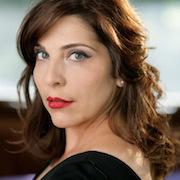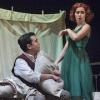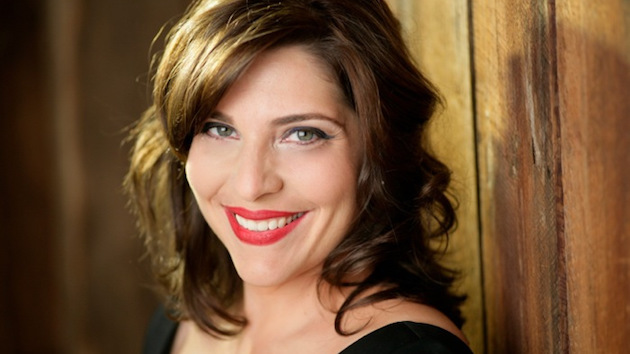
In a scene in Opera Parallèle’s production of Rachel Portman’s The Little Prince, an opera based on the beloved novella by French poet and aviator Antoine de Saint-Exupéry, the title character — played in this contemporary version by a young girl — is in crisis. The Rose he loves but whose cloying dependency and deceptions cause him to flee their tiny Asteroid 325 homeland, has landed on one of nine planets to which he travels. Seeking solace and to solve loneliness, he encounters a vast rose garden — and his true love’s greatest deceit. The Rose is not the one-of-a-kind flower she claims and he believes her to be.
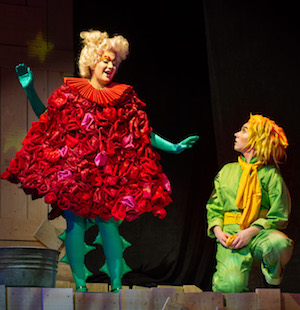
Although mezzo-soprano Eve Gigliotti is not featured in the scene, it is her favorite. As the Pilot and narrator of the story about a forlorn Little Prince whose path the aviator crosses when her plane crashes in the Sahara desert, she says the devastation speaks to the power of opera and the potential of classical music. “He wonders if his Rose matters anymore, and wonders if he’s no longer special because maybe she’s not. It’s a crisis about whether or not what he does matters in the world.”
Perhaps it resonates with the actor’s soul in Gigliotti. A native of Bucks County, Pennsylvania, not far from Philadelphia, the singer’s early aspirations were aimed at musical theater. “I grew up a middle-class, suburban kid with grandparents from Italy, but opera was not a part of my household.” Instead, the young Gigliotti was hooked on The Sound of Music, Peter Pan, and especially Annie. Aileen Quinn, who starred in the title role in the film adaptation, lived in the neighborhood. “When I was seven, I got on my bike and rode down the street, knocked on her door. I had a whole scrapbook of Annie with me. She actually came out and sat down next to me on her front step and signed my book and drew a picture of her face as Annie. I still have the scrapbook.”
Years later, while studying at the Curtis Institute of Music, Gigliotti shed her musical-theater obsession — but not her love of opera’s dramatic element — and trained her voice for classical music. “When I chose a college, I figured I had something other actors didn’t: my voice. My strong suit is the acting aspect. I’m best when I’m collaborating, fully engaged, listening.”
After early career success, Gigliotti hit turbulence. Classified as a soprano, during her late 20s her voice was no longer working. Pushing to sing, auditioning and failing to land roles, she yearned for the answer that finally arrived when Ruth Falcon at the New School of Music told Gigliotti she had been misclassified. “Something she heard in my voice made her suspect I was meant for mezzo-land. Within two years, I was making my Met debut as Mercédès in Carmen. It was the switch: everything clicked. I found my voice. It’s mature, it’s from my body, and it grows and changes with how I grow.”
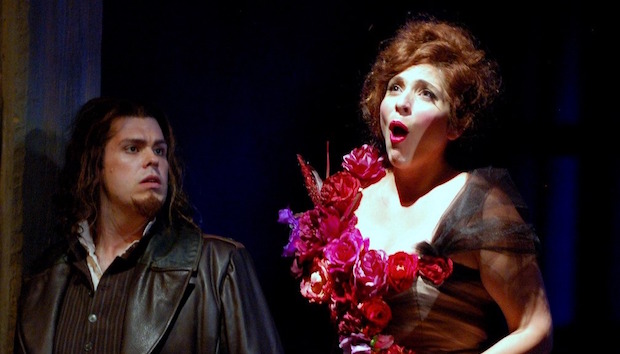
Projects that range from Wagner to Berlioz to song cycles and new American operas created in close collaboration with a team have Gigliotti saying she loves both the “Ride of the Valkyries,” French grand operas, 300-year-old music that “still speaks truth,” and performing debut roles that allow her to work on her own terms. “Not always trying to fill shoes as a classical artist is so liberating,” she says.
Beyond beautiful music and a librettist who “understands making things happening in a rehearsal room as opposed to just playing traffic cop,” Gigliotti is drawn to dynamic roles and vocal challenges. The Pilot, she says, is written for baritone and lands in the passaggio of her voice. “It’s written in the cracks in my registration. It’s a tricky place to sing. I’m not singing it like I would a Valkyrie. I’m using my head voice. I don’t want my breathing to get high just to sing in a lighter way consistently. I don’t want to come off of my voice, lose color.” Gigliotti records rehearsals, then listens, searching for places to play with the palette, lighten up, just say the words. The young singers who alternate as the Little Prince, Hannah Gonzales and Erin Enriquez, inspire differently shaded portraits. “Erin is sassier while Hannah has an important, deep quiet to her. There’s different chemistry I give back, but the singing and staging are the same.”
Gigliotti has a four-year-old son. In her role as a female pilot, she feels an aviator’s wonder and adventure along with the maternal, nurturing instincts of a mother. A journal she prepared while researching the part holds images and accounts of courageous female pilots who flew all over the world and into space. About her relationship with the Little Prince, she says, “The Pilot wants the child to be OK, but the child is actually the leader and has the wisdom. I learn about life watching this child prince. I have that sense with my son in my real life too.”
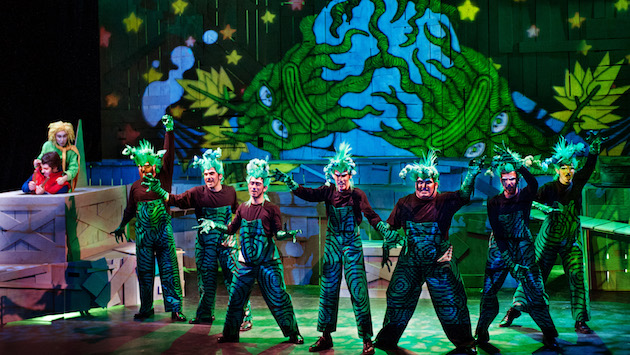
Of course, Gigliotti recognizes that there is opportunity — arguably even an obligation — as a woman and an artist to assume leadership. Gender parity and race diversity in the opera industry is changing for the better, according to her estimation based on projects like Portman’s opera and others. Gigliotti is a National Sawdust artist in residence and is for the first time undertaking production of a work she initiated. Inspired by Cindy Sherman’s Untitled Film Stills, a series of 70 iconic black-and-white photographs taken from 1977–1980, she is creating mono-dramas based on four images. “I’m the actress throughout. Three out of four composers commissioned are female and the executive director of Sawdust Project company is female. So there’s a lot of female energy behind it.”
Introducing audiences to classical music in new ways and venues, Gigliotti insists is imperative. “As well as with classical works, it’s important to reach today’s world and society and send the message that opera is powerful. Classical music is a human experience. We need people of all colors and shapes to tell the story: it’s not just a white man’s world. That means true stories can’t always be told through grand opera.”

